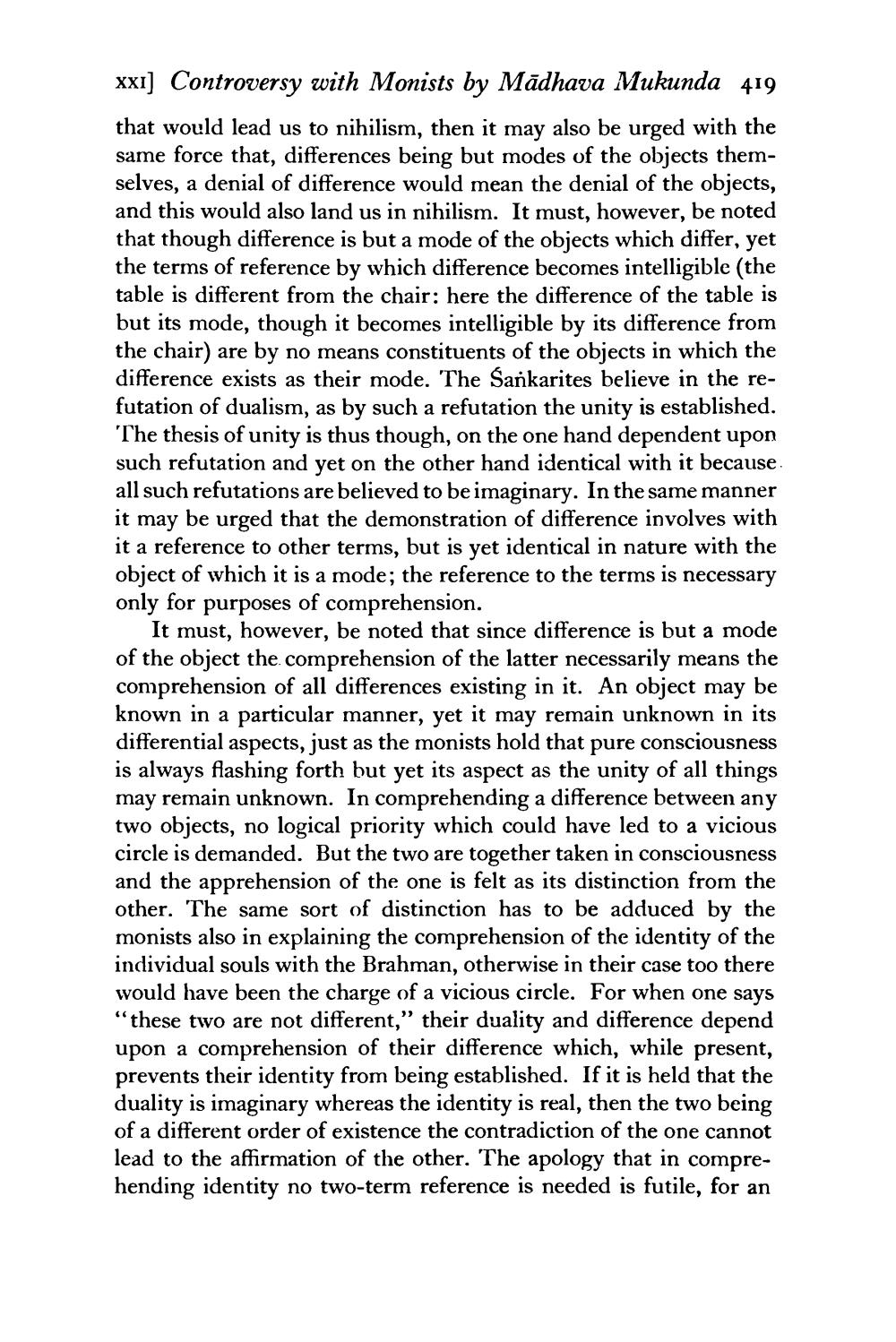________________
XXI) Controversy with Monists by Mādhava Mukunda 419 that would lead us to nihilism, then it may also be urged with the same force that, differences being but modes of the objects themselves, a denial of difference would mean the denial of the objects, and this would also land us in nihilism. It must, however, be noted that though difference is but a mode of the objects which differ, yet the terms of reference by which difference becomes intelligible (the table is different from the chair: here the difference of the table is but its mode, though it becomes intelligible by its difference from the chair) are by no means constituents of the objects in which the difference exists as their mode. The Sankarites believe in the refutation of dualism, as by such a refutation the unity is establish The thesis of unity is thus though, on the one hand dependent upon such refutation and yet on the other hand identical with it because all such refutations are believed to be imaginary. In the same manner it may be urged that the demonstration of difference involves with it a reference to other terms, but is yet identical in nature with the object of which it is a mode; the reference to the terms is necessary only for purposes of comprehension.
It must, however, be noted that since difference is but a mode of the object the comprehension of the latter necessarily means the comprehension of all differences existing in it. An object may be known in a particular manner, yet it may remain unknown in its differential aspects, just as the monists hold that pure consciousness is always flashing forth but yet its aspect as the unity of all things may remain unknown. In comprehending a difference between any two objects, no logical priority which could have led to a vicious circle is demanded. But the two are together taken in consciousness and the apprehension of the one is felt as its distinction from the other. The same sort of distinction has to be adduced by the monists also in explaining the comprehension of the identity of the individual souls with the Brahman, otherwise in their case too there would have been the charge of a vicious circle. For when one says “these two are not different,” their duality and difference depend upon a comprehension of their difference which, while present, prevents their identity from being established. If it is held that the duality is imaginary whereas the identity is real, then the two being of a different order of existence the contradiction of the one cannot lead to the affirmation of the other. The apology that in comprehending identity no two-term reference is needed is futile, for an




